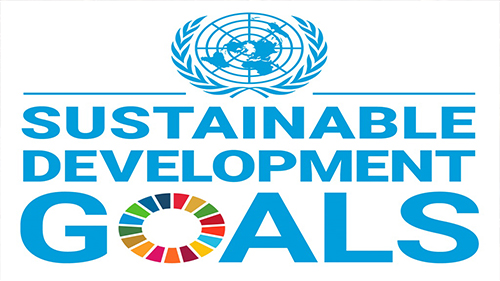Contact Center
.
12 December 2020
H.E Shaikha Mai Presents Her Second Pillar’s Vision Strategy for the UNWTO’s Secretary-General Post
H.E: Tourism has fundamental role in achieving Sustainable Development Goals


Since Bahrain’s announcement of the nomination of H.E Shaikha Mai bint Mohammed Al- Khalifa, President of the Bahrain Authority for Culture and Antiquities (BACA) for the position of the Secretary General of the World Tourism Organization (UNTWO) in early November, H.E has announced a vision and strategy of seven interrelated pillars to develop and advance the tourism sector, regaining its strategic role in enhancing economic growth and prosperity.
The second pillar of the vision for the future of the World Tourism Organization focuses on the relationship between the tourism sector’s development and the achievement of Sustainable Development Goals (SDGs).
H.E Shaikha Mai said: “Adopting the Sustainable Development Goals is the first step towards achieving them,” said. “The next stage, however, requires translating the voluntary commitments of the Member States and World Tourism Organization into national regulatory frameworks. While tourism is mentioned in only a few of the Sustainable Development Goals, the sector plays a fundamental role in realizing them.”
The UNTWO can play an important role in monitoring the compliance of the tourism sector and the governmental regulatory frameworks with these goals, she added, arguing, “We must continue to support sustainable tourism to drive socio-cultural progress and achieve greater economic prosperity,” pointing to Bahrain’s growth of its cultural sector and how this has enhanced tourism.
Shaikha Mai indicated that she will focus on the more strategic issues related to the tourism sector while working to integrate the Sustainable Development Goals and the Global Code of Ethics into national regulatory frameworks during the next phase of the UNTWO’s work.
H.E explained how sustainable tourism could contribute to realizing the Sustainable Development Goals, namely those goals aimed at “poverty eradication,” “gender equality,” and “decent work and economic growth.” H.E Shaikha Mai noted that the strength of this sector is intertwined with other sectors in some countries, with potential human resources shedding lights on possible wider context future achievements.
H.E added saying that the role of tourism in climate change cannot be underestimated as air transport and current travel habits have clearly affected the environment, pointing out that t the UNWTO should lead global initiatives to reduce the environmental impact of tourism such as the implementation of long-term strategies to give incentives to railways’ travelling, particularly within regions endowed with a strong railway developed infrastructure. The world should also focus more on research and development towards reducing gas emissions’ mechanisms, using alternative energy, managing water, and minimizing waste by recycling, H.E concluded.







